Beijing+25 (2020) — The Leading Role of Women in Building Peace
March 8 is International Women’s Day. Even in the 21st century, women have been the victims of the worst atrocities, among which is the abominable crime of rape, for which there is no justification. This is a disgrace to humanity.
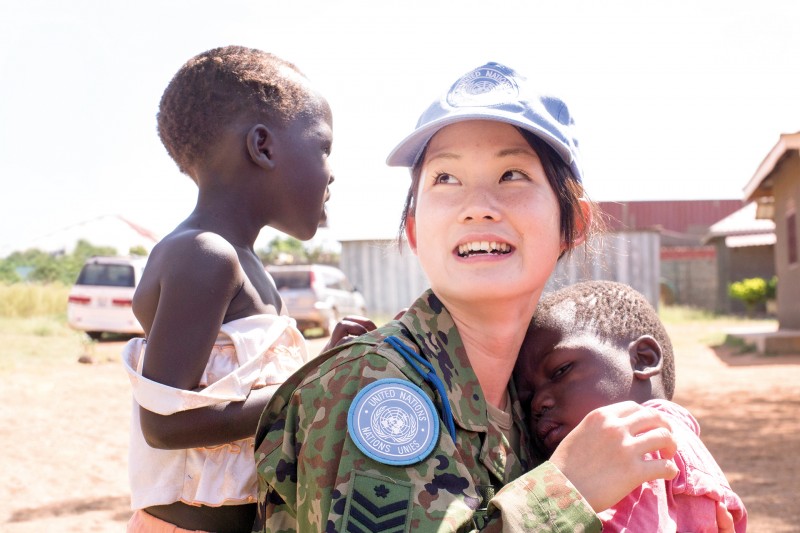
In the Preamble to the Constitution of the United Nations Educational, Scientific and Cultural Organization (UNESCO), which was approved on November 16, 1945, we find a description of this reality: “Since wars begin in the minds of men, it is in the minds of men that the defences of Peace must be constructed.” This also concerns any other barbarity. In 2003, I made it a point to open my book Reflexões da Alma [Reflections of the Soul] with this teaching. It really outlines our work plans. However, I consider it important to explain that this accurate warning has to do with human beings in general and not just with men.
Greetings
My greetings to all international delegations, authorities, and participants who decidedly meet here in New York (USA), between March 9 and 20, 2020, during the 64th session of the Commission on the Status of Women, organized by the United Nations (UN) with the noble purpose of discussing the central theme: “Review and appraisal of the implementation of the Beijing Declaration and Platform for Action and the outcomes of the 23rd special session of the General Assembly.”
This meeting promotes a deep reflection about the current challenges that affect the fulfillment of this essential agenda and the achievement of gender equality and female empowerment, and about how these efforts contribute to the success of the Sustainable Development Goals (SDGs).
It is always a great honor for the Legion of Good Will (LGW) to participate in these debates with its own contribution and endeavors to defend this fundamental objective, above all in a globalized and warlike world.
When we participated in that memorable meeting in 1995, the Fourth World Conference on Women, in Beijing (China), we addressed a message to the conference attendees, which had been previously published in 1987 in the International Business and Management magazine. The article was entitled “There Is No World Without China,” and, among other topics in it, I wrote:

Peter
The path of the LGW is that of Peace. No more wars! Brutality is the law of irrational beings, not of human beings, who consider themselves to be superior. We defend the valuing of individuals, taking into account the indispensable equality, above all spiritual equality, of the genders, since the wealth of a country lies in its people. . . .
Let us make ours these words of Apostle Peter in his First Epistle 3:11:
“Turn away from evil and do good. Seek peace and pursue it.”
This much desired Peace, the legitimate and necessary antidote to spiritual, social, and physical problems, such as global crises, will be achieved when we also no longer have any type of discrimination against women and girls (actually, children of both sexes). In doing so, we shall guarantee them the empowerment and autonomy to be the protagonists in dismantling the absurd cruelty that dominates the hardened innermost core of individuals, by using the maternal feelings that are born in the hearts of each woman, regardless of whether they are mothers of carnal children or not. As I strongly defend: all women are mothers.
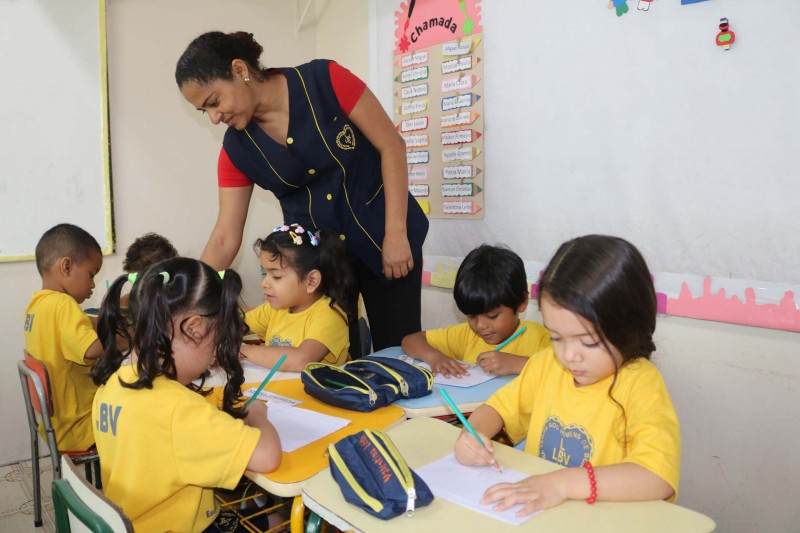
The example of Hypatia
I recall an example of a pioneering personality in Mathematics, Astronomy, and an icon of Philosophy in ancient times, who I paid tribute to in my article “Hypatia, the Mother of Philosophers.” Ascetic and celibate, she left no heirs, but, as I said in 1987, there are many sublime ways of being a mother, including giving birth to great achievements in favor of humanity.

Hypatia
Such was the case of Hypatia (approximately 355-415). Her dedication to metaphysical matters generated offspring, which continually remind us of the constant need to seek for answers to the questions that have forever afflicted us. At a time when female intellectuality was not recognized, her theses influenced many powerful people. Her lectures were not only confined to the philosophical field, because she was also sought out to give her opinion about political and community matters.
However, in an environment of strong intolerance, Hypatia began to upset people. The atrocity that took her life would cause horror even among the most cruel executioners of all times. As we do not want the terrible attitudes that were adopted against the philosopher of Alexandria to be repeated, it is worth highlighting an excerpt taken from the “Beijing Declaration and Platform for Action — Women in Power and Decision-making,” in which we read:
“The Universal Declaration of Human Rights states that everyone has the right to take part in the Government of his/her country. The empowerment and autonomy of women and the improvement of women’s social, economic and political status is essential for the achievement of both transparent and accountable government and administration and sustainable development in all areas of life.”
This is a decisive step towards extinguishing the intolerance that sponsors disastrous actions against humanity.
The needed protection at home
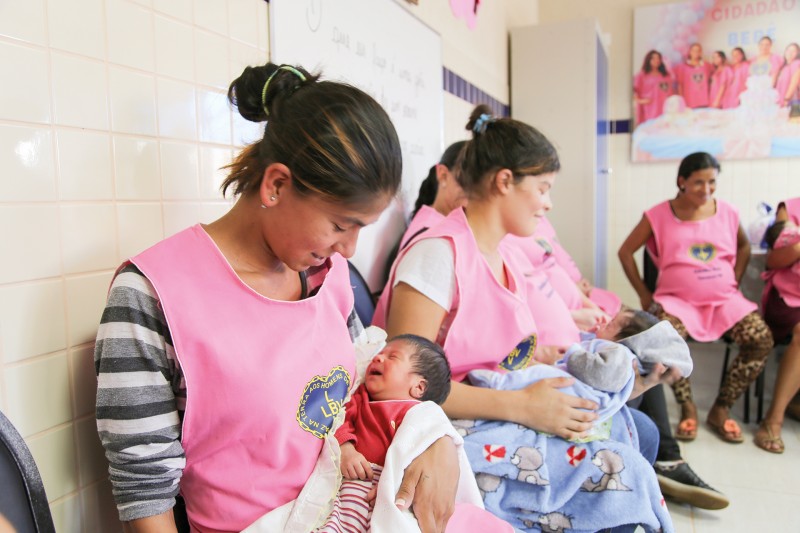
In general, the first people to suffer the deplorable damage caused by planetary conflagrations are precisely women and girls (in fact, all children). Therefore, we can observe imminent danger still surrounding the good ideals of seeing them free and secure in their own homes.
Violence against them is a sad reality affecting several regions in the world, even in countries that have already advanced with regard to laws that protect them. In other words, it is not restricted to areas of declared conflicts. There is a type of disguised war that lurks around our homes, communities, companies, municipalities, States, religions . . . Wherever there is violence, there we shall find the horrendous face of hatred!

Florence Nightingale
This vile aspect was known to Florence Nightingale (1820-1910), the valiant British nurse born in Florence, then capital of the Grand Duchy of Tuscany, now Italy. She fought to break the retrograde conventions concerning the role of women in society in her time and believed she had been called by God to serve a great purpose. With her self-denial, she was at the forefront of considerable progress in the field of health in the Victorian Age. During her inestimable contribution to caring for English soldiers during the Crimean War, the “Lady with the Lamp” rightly declared in a letter dated May 5, 1855:
“What the horrors of war are, no one can imagine—they are not wounds and blood and fever, spotted and low, or dysentery, chronic and acute, cold and heat and famine—they are intoxication, drunken brutality, demoralization and disorder on the part of the inferior, jealousies, meanness, indifference, selfish brutality on the part of the superior. . . .”
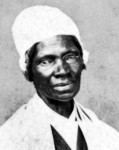
Sojouner Truth
It is also worth recalling here a part of the speech delivered by Sojourner Truth (1797-1883), an African American Pentecostal preacher and active abolitionist, at the 1851 Women’s Rights Convention in Akron, Ohio (USA), where she was the only black person present.
During the event, which discussed female empowerment for the right to vote and to work, Truth denounced the invisibility imposed on women of her race, who had been removed from those debates for racial reasons. In a dignified way she declared:
“That man over there says that women need to be helped into carriages, and lifted over ditches, and to have the best place everywhere. Nobody ever helps me into carriages, or over mud-puddles, or gives me any best place! And ain’t I a woman? Look at me! Look at my arm! I have ploughed and planted, and gathered into barns, and no man could head me! And ain’t I a woman? I could work as much and eat as much as a man—when I could get it—and bear the lash as well! And ain’t I a woman? I have borne thirteen children, and seen most all sold off to slavery, and when I cried out with my mother’s grief, none but Jesus heard me! And ain’t I a woman?”
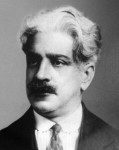
Oswaldo Cruz
Although faced with such a harsh reality, as the case described above, and unfortunately present even in the 21st century, let us never forget this maxim of the famous Brazilian scientist, doctor, bacteriologist, epidemiologist, and public health official Dr. Oswaldo Cruz (1872-1917):
“Don’t despair in order not to belittle yourself.”
I equally emphasize in my fraternal talks that if something is difficult to be accomplished, let us begin right away, like yesterday! There is a lot to be done. No undertaking that aims at solving earthly ills can be conceived without the effective participation of women of all ethnicities, beliefs, and even those who do not have one.

While re-reading my book Jesus, a Dor e a origem de Sua Autoridade [Jesus, the Pain and Origin of His Authority], which was launched on November 8, 2014, I came across some modest notes which I would like to share with you, who honor me with your reading:
Disarming hearts

André Rebouças
Unfortunately, people still have not adjusted their lenses to see that true harmony is born of the enlightened innermost part of each creature, through spiritual knowledge, Generosity, and Justice. As I often say, and I will comment on this at other times, these virtues produce abundance. The tranquility that the Heavenly Mother-Father has to offer has nothing to do with the frustrating, inefficient deals and agreements throughout our History. Brazilian engineer and abolitionist André Rebouças (1838-1898) translated the inertia of exclusively human perspectives into a metaphor:
“Armed peace is to war as chronic disease is to acute disease; like a stubborn fever to typhus. All these diseases annihilate and kill nations; it’s just a matter of time.”
[Emphasis added.]
Now, experiencing disarmed Peace, based on the fraternal instruction of all nations, is a measure for the survival of people that cannot be postponed. But for this to happen hearts must first be disarmed, while preserving good sense, as I pointed out to the young people of all ages who heard me speak in the city of Jundiaí (Brazil), in September 1983, and that was later published in the Folha de S.Paulo newspaper on November 30, 1986. As I said at the time, the real danger lies not just in arms, but also in the brains behind the production of those arms; the brains that create the conditions, both locally and worldwide, for these weapons to be used, the fingers that push the buttons and pull the trigger.
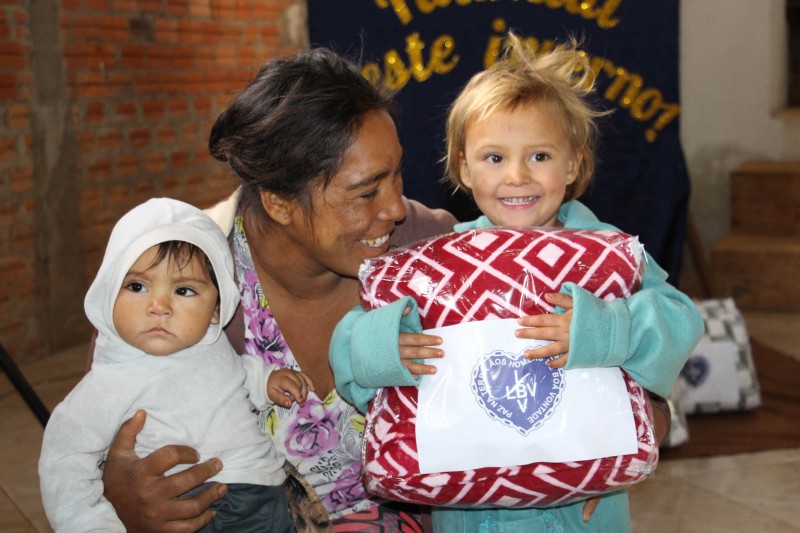

John the Evangelist
Arms alone do nothing, nor do they appear by “spontaneous generation.” But they are dangerous even if they are stored in arms magazines. They can explode or get rusty and pollute the
environment. They are the effect of the cause of human beings when they are distant from God, the Causa causarum,* which is Love (First Epistle of John 4:16), seen from one side to the other, with equilibrium, and recognized as being the inspirer of Ecumenical Fraternity. This is the magnanimous point of reference for all religions and the utmost desire of humans, independently of their beliefs or non-beliefs, which we respect. We become true atomic bombs, biological and chemical weapons, cannons, or rifles, when we distance ourselves from Goodness and do not live by the precepts of Fraternity, Solidarity, Generosity, and Justice of the Sublime Divinity that challenges us to be better and more caring people.
The deadly, mental, and physical weapons will lose all their terrible significance and bad reason for existing on the day wisely re-educated individuals no longer have sufficient hatred to fire them. And they will no longer be manufactured.
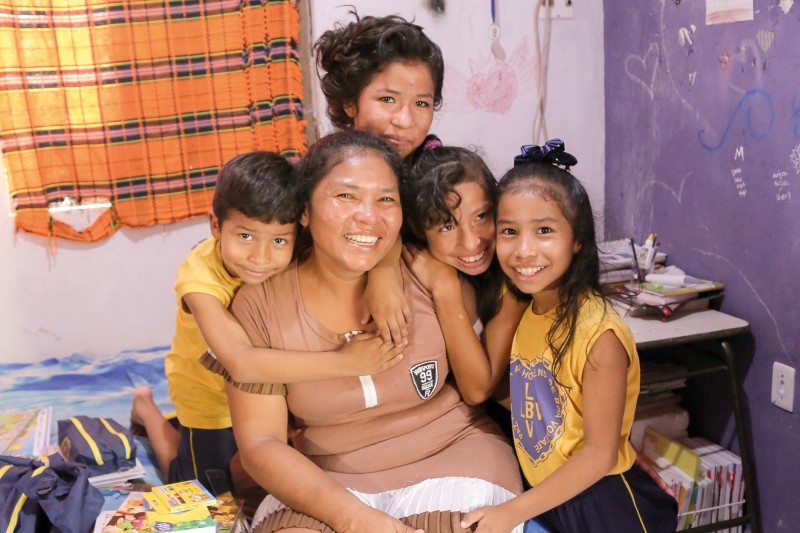
We need to deactivate the explosives, stop holding the grudges that insist on dwelling within human hearts. This is the great message of the Legion of Good Will, inspired by Jesus, whom we understand as the Ecumenical Christ, whose message and teachings of Peace are addressed unrestrictedly to all inhabitants of the world and should never be seen as incentive to intolerance or segregation: to untrigger the anger with which armaments are fired, with a force mightier than hatred. This powerful transformative energy is Fraternal Love. I am not referring to the still incipient love of human beings, but to the Love of God, on which all of us need to feed. We have in our hands the strongest tool in the world. This is what is going to avoid all the different types of war, which first emerge in the Souls, when ill, of living beings. It is an educational, more than that, re-educational work to be done within a wide range, in every field of spiritual-human knowledge. . . .

Overcoming the obstacles
In closing this unpretentious article, I turn to an argument I presented during one of my impromptu speeches, which is also appropriate for those who perhaps may be thinking that the responsible construction of Peace is an impossible task: Is this utopia? Why?! Everything that today is seen as progress was considered to be something mad in a not so ancient past. . . .
The more investment made in education, training, culture, and nourishment, enlightened by the Higher Spirituality, the better the health of the people will be; therefore, the greater spiritual, moral, mental, and physical qualifications they will have for life and work and less will be spent on security. “Oh, this is work for years to come!!” That is why we must not waste time! If we do, the civilizing achievements in the world, which are threatening to collapse, will give way to a contagious disillusionment that will affect the whole Earth. We cannot allow such a situation to arise.
Living peacefully

Luke
The fraternal greeting that Christ—the Prince of Peace, due to all of His countless examples towards the understanding of humankind—taught His apostles and disciples is ecumenically extended to all earthly beings as a valuable invitation to live peacefully with one another in the planet, our collective dwelling:
“When you enter a house, first say: May there be Peace in this house!” (The Gospel of Jesus according to Luke 10:5)
Peace is the sublime feeling that, when transformed into concrete actions through our efforts, can lead to the most comprehensive protection network for women and girls, and consequently for all genders. Let us work tirelessly for it!
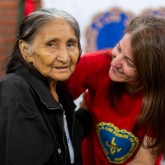
The comments do not represent the views of this site and are the sole responsibility of their authors. It denied the inclusion of inappropriate materials that violate the moral, good customs, and/or the rights of others. Learn more at Frequently asked questions.